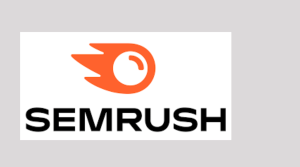Introduction
As an experienced eCommerce business owner, you’ve built a thriving brand, scaled to $500K+ in annual revenue, and mastered the art of selling niche products. But now, you’re ready to take things to the next level—to expand internationally, reduce ad costs, and increase conversions while maintaining the quality and trust your customers love.
The secret to achieving these goals? Strategic keyword research. By uncovering the exact terms your audience is searching for, you can optimize your Google Ads for eCommerce campaigns, refine your content marketing, and outpace your competitors. Whether you’re feeling overwhelmed by PPC complexity or looking for advanced tips to improve your CPC in Google Ads, this guide has you covered.
TL;DR
Discover the best keyword research tools to help eCommerce businesses scale, reduce CPC in Google Ads for eCommerce, and increase conversions. Learn actionable strategies to optimize PPC campaigns, maintain performance during seasonal slumps, and build long-term brand trust.
Why Keyword Research is Crucial for E-commerce Scaling
For eCommerce businesses, keyword research is more than a marketing tactic—it’s the foundation of a scalable, data-driven growth strategy. Here’s why it matters:
- Targeting High-Intent Customers: Keywords like “handmade gemstone necklaces” attract buyers ready to purchase, not just browse.
- Reducing CPC in Google Ads: By focusing on low-competition, high-conversion keywords, you can lower costs while increasing ROI.
- Expanding Internationally: Keyword research helps you identify search terms popular in new markets, ensuring your ads resonate globally.
- Outpacing Competitors: Tools like SEMrush and Ahrefs reveal keyword gaps your competitors haven’t capitalized on.
Key Features to Look for in Keyword Research Tools
Not all tools are created equal. To scale your eCommerce business effectively, prioritize tools with these features:
- Search Volume and Competition Insights: Identify high-traffic, low-competition keywords.
- Intent Analysis: Differentiate between informational, navigational, and transactional keywords.
- Competitor Analysis: Discover what’s working for competitors in your niche.
- Integration with Google Ads: Streamline keyword selection for PPC campaigns.
- Affordability: Choose tools that fit your budget and offer a strong ROI.
The Best Keyword Research Tools for E-commerce Businesses

1. Google Keyword Planner
- Why It’s Great: Google’s free tool provides insights into search volume, competition, and keyword trends.
- How to Use It:
- Enter niche-specific terms like “custom engagement rings” or “organic skincare.”
- Prioritize high-traffic keywords with manageable competition.
- Pro Tip: Use it to identify seasonal trends and plan campaigns in advance.

2. SEMrush
- Why It’s Great: A comprehensive tool for keyword research, competitor analysis, and SEO.
- How to Use It:
- Use the “Keyword Gap” tool to find terms your competitors rank for but you don’t.
- Analyze competitor PPC campaigns to uncover profitable keywords.
- Pro Tip: Combine SEMrush data with Google Ads for eCommerce to target high-performing keywords for your niche.

3. Ahrefs Keyword Explorer
- Why It’s Great: Offers detailed keyword metrics, including click potential and difficulty scores.
- How to Use It:
- Research niche long-tail keywords like “vegan leather handbags under $100.”
- Track keyword performance across international markets.
- Pro Tip: Use Ahrefs to identify content gaps and create blog posts or videos that rank organically.

4. Ubersuggest
- Why It’s Great: Beginner-friendly with affordable pricing and robust keyword suggestions.
- How to Use It:
- Analyze cost-per-click (CPC) and competition levels for your keywords.
- Discover long-tail keywords that align with your products.
- Pro Tip: Use Ubersuggest’s content ideas feature to plan blog posts that drive organic traffic.

5. AnswerThePublic
- Why It’s Great: Generates keyword ideas based on real customer questions.
- How to Use It:
- Enter broad topics like “handmade jewelry” to uncover customer pain points.
- Create content or ads that directly address these questions.
- Pro Tip: Use these insights to craft FAQ sections or blog posts that establish trust and authority.
Advanced PPC Tips for Niche E-commerce Brands
- Combine Organic and Paid Strategies
Use keyword research to fuel both PPC campaigns and content marketing.
Example: Target “affordable yoga mats” in Google Ads while creating an SEO-optimized blog post on “How to Choose the Best Yoga Mat.” - Focus on Long-Tail Keywords
Long-tail keywords like “custom birthstone necklaces for moms” may have lower search volume but higher conversion rates.
Tools like SEMrush and Ubersuggest can help you uncover these gems. - Optimize for Seasonal Trends
Use historical data to predict seasonal slumps and plan ahead.
Example: Run PPC campaigns for “holiday gift ideas” in Q4 and “spring cleaning essentials” in Q1. - Leverage Dynamic Remarketing
Retarget past visitors with ads showcasing the exact products they viewed.
Tools like Google Ads or Optmyzr can automate this process. - Monitor and Adjust Regularly
Use tools like Google Analytics to track clicks, impressions, and conversions.
Replace underperforming keywords with new ones every 3-6 months.
Maintaining Performance During Seasonal Slumps
Seasonal fluctuations are inevitable, but here’s how to stay ahead:
- Content Marketing: Create evergreen content that drives traffic year-round.
- Smart Budgeting: Lower ad spend during slow months, but focus on high-intent keywords.
- Email Campaigns: Send exclusive offers to your email list to re-engage past customers.
Reducing CPC Without Sacrificing ROI
High CPC in Google Ads for eCommerce can strain your budget. Here’s how to reduce costs while maintaining performance:
- Refine Targeting: Focus on geo-specific and demographic targeting to reach the right audience.
- A/B Test Ads: Experiment with different headlines, images, and CTAs to improve click-through rates.
- Use Negative Keywords: Filter out irrelevant searches to avoid wasted spend.
- Automate Bidding: Use tools like Optmyzr to adjust bids based on performance data.
Building Long-Term Brand Trust with Content and Reputation Marketing
Keyword research isn’t just for ads—it’s a powerful tool for building trust and authority:
- Customer Reviews: Highlight testimonials in your ads and on your website.
- Educational Content: Create guides, videos, or blog posts that answer common questions (e.g., “How to Clean Handmade Jewelry”).
- Social Proof: Share user-generated content from Instagram or Pinterest to showcase your brand’s authenticity.
Closing Thoughts: Let’s Scale Your E-commerce Brand Together
Scaling your eCommerce business doesn’t have to feel overwhelming. With the right keyword research tools, advanced PPC tips, and a clear strategy, you can reduce costs, increase conversions, and grow your brand with confidence.
Ready to optimize your Google Ads for eCommerce and scale faster? Book a free strategy call or download our PPC Performance Checklist today. Let’s work together to make your business the go-to choice in your niche!

